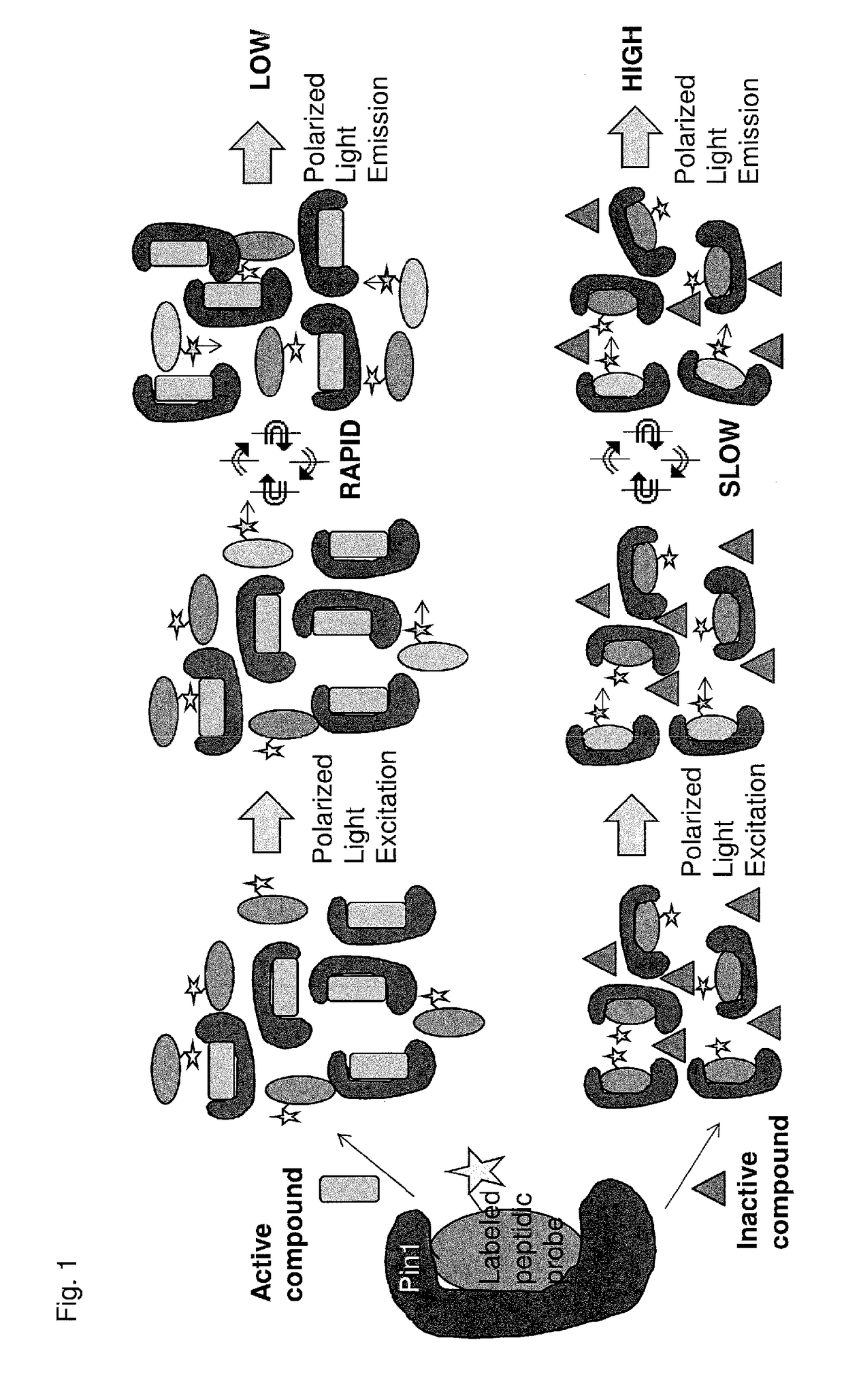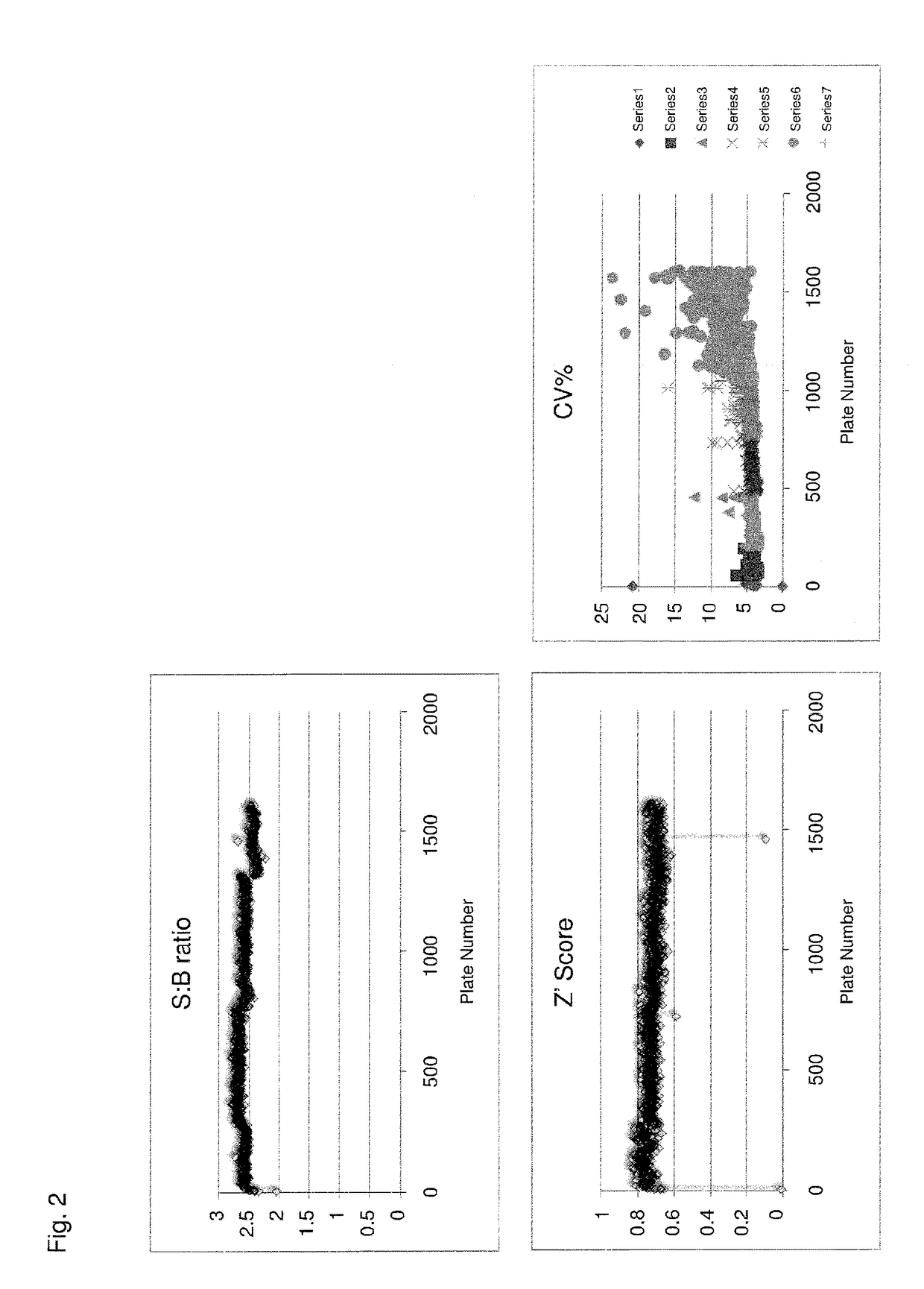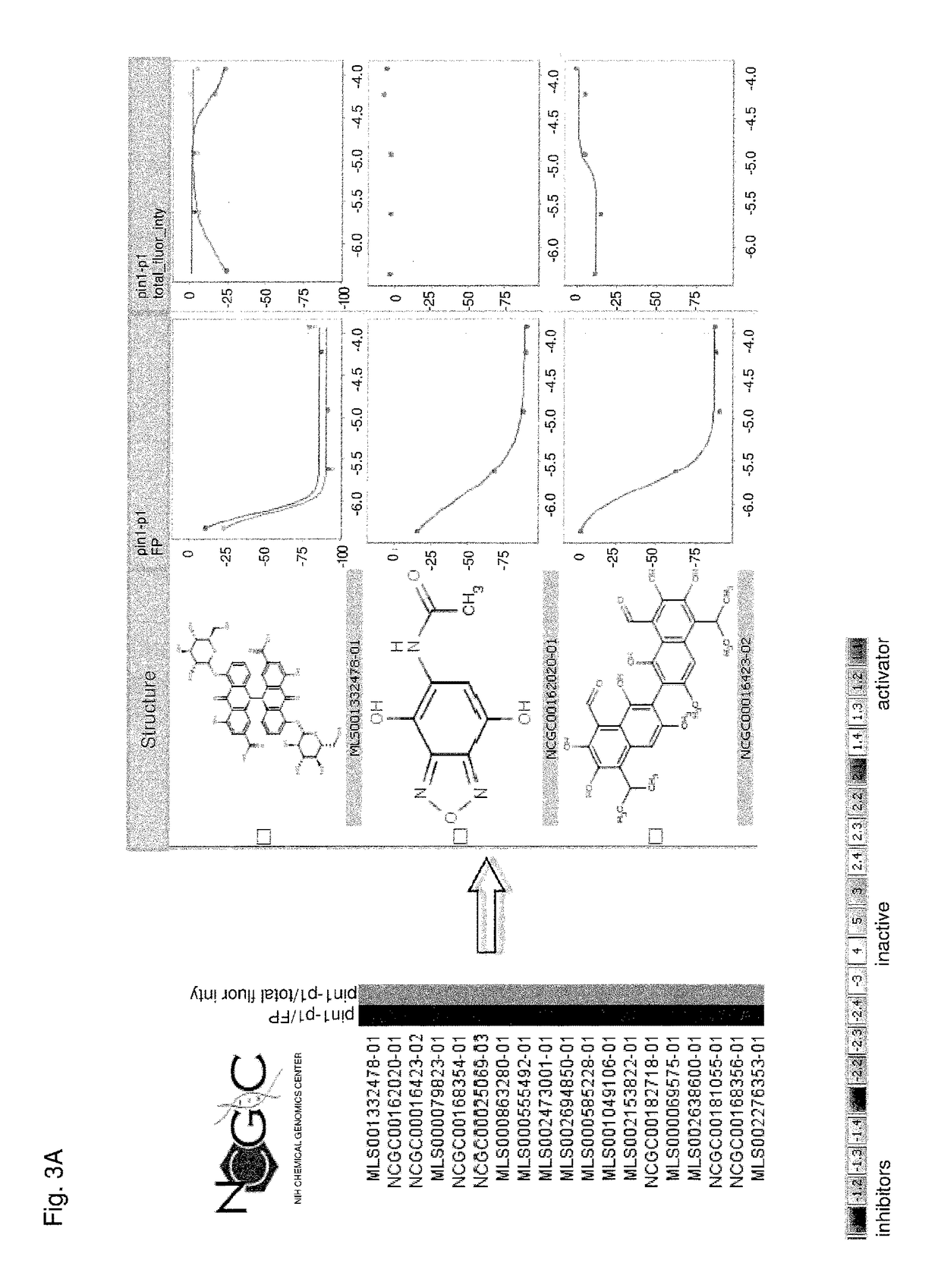Methods and compositions for the inhibition of Pin1
a technology of inhibition and composition, applied in the field of compositions and methods for inhibiting pin1, can solve the problems of pin1 being prevalently overexpressed, accompanied by adverse side effects, and no absolute success guarantee,
- Summary
- Abstract
- Description
- Claims
- Application Information
AI Technical Summary
Problems solved by technology
Method used
Image
Examples
example 1
Pin1 Inhibitor Assay
[0210]An assay was developed for the identification of inhibitors of Pin1. The goal of this assay was to identify small-molecule inhibitors of Pin1 using a fluorescence polarization competition assay (FIG. 1). In this assay, fluorescence polarization is used to determine whether a given candidate small molecule inhibitory compound displaces a HiFluor-488-labeled peptide that normally binds to the active site of Pin1. Candidate compounds were screened in a concentration-titration series (e.g., 57 μM to 0.7 nM).
[0211]Pin1 (0.6 μM) was dispensed into black, solid 1536-well plates (32 rows by 48 columns) at 2 μL / well in Pin1 buffer (10 mM HEPES (pH 7.5), 10 mM NaCl, 0.01% Tween20, 1 mM DTT, and 1% glycerol). Next, 23 nL of compound or DMSO was delivered to each well using a pin tool (tip wash sequence: DMSO, IPA, MeOH, 3 s vacuum dry). Two μL of Pin1-1b-HiFluor488 peptide in buffer (10 mM HEPES (pH 7.5), 10 mM NaCl, 0.01% Tween20, 1 mM DTT, and 1% glycerol, 0.02 μM P...
example 2
Quantitative High Throughput Analysis of Candidate Pin1 Inhibitors
[0215]The Pin1 fluorescence polarization competition assay of Example 1 was used to identify inhibitors of Pin1 from a library of 393,181 compounds (Table 3). Initial analysis was accomplished in an offline LOPAC assay. Ten plates were screened, inclusive of 1,280 compounds, collecting 8,960 data points. A hit rate of 1.8% was achieved. A subsequent online LOPAC analysis of 30 plates was also inclusive of 1,280 compounds, collecting 26,880 data points. A hit rate of 1.5% was achieved. qHTS of 1607 plates inclusive of 393,181 compounds was then executed, collecting 2,359,086 data points. A hit rate of 0.6% was achieved (Table 3). Performance of the assay may be gauged using S:B ratio by plate, Z′ score by plate, or CV % by plate (FIG. 2).
[0216]
TABLE 3Pin-1 Inhibitor Screens and overall Plate StatisticsParameterOffline LOPACOnline LOPACqHTSSystemOfflineKalypsys robotKalypsys robotPlates screened10301607Plates failed QC0...
example 3
Identification of Pin1 Inhibitors
[0217]Data collected from the Pin1 fluorescence polarization competition assays of Example 2 may be expressed as curves showing log concentration of compound (X axis) by change polarized fluorescence or total fluorescence (FIGS. 3A-3E). Curves showing change polarized fluorescence may be categorized into 5 classes. Class 1 includes complete curves, having 2 asymptotes and an r2 value of ≧0.9, with an efficacy of either >80% (class 1.1) or 80% and r222 value of either >0.9 (subclass a) or 80% (class 2.1) or 80% and r223 SD from the mean activity of the sample field at the highest tested concentration. Class 4 includes inactive curves, for which there are no asymptotes and for which efficacy and r2 value are not applicable. A fifth class captures any curves not otherwise classified (FIG. 4).
[0218]Analysis of results from the Pin1 fluorescence polarization competition assays of Example 2 reveal that 99% of compounds (388,068 compounds) yield data curves...
PUM
| Property | Measurement | Unit |
|---|---|---|
| disorder | aaaaa | aaaaa |
| immune disorder | aaaaa | aaaaa |
| connective tissue disorder | aaaaa | aaaaa |
Abstract
Description
Claims
Application Information
 Login to View More
Login to View More - R&D
- Intellectual Property
- Life Sciences
- Materials
- Tech Scout
- Unparalleled Data Quality
- Higher Quality Content
- 60% Fewer Hallucinations
Browse by: Latest US Patents, China's latest patents, Technical Efficacy Thesaurus, Application Domain, Technology Topic, Popular Technical Reports.
© 2025 PatSnap. All rights reserved.Legal|Privacy policy|Modern Slavery Act Transparency Statement|Sitemap|About US| Contact US: help@patsnap.com



